Post-Traumatic Stress Disorder
Post-Traumatic Stress Disorder (PTSD) is a mental health condition that can develop after experiencing or witnessing a traumatic event, such as a natural disaster, serious accident, terrorist act, war/combat, rape, or other violent personal assault. PTSD is characterized by intense, disturbing thoughts and feelings related to the experience that last long after the traumatic event has ended. Individuals with PTSD may relive the event through flashbacks or nightmares, feel sadness, fear or anger, and may feel detached or estranged from others.
PTSD can affect anyone who has gone through a traumatic event, and it can develop immediately after the event or years later. It can interfere with daily activities and relationships, making it challenging to live a fulfilling life. Recognizing the signs of PTSD and seeking timely treatment can help individuals manage their symptoms, improve their quality of life, and regain a sense of normalcy. Effective treatment can help individuals process their trauma, reduce the intensity of symptoms, and develop coping strategies.

At Vital Psych MD, our care team is led by Dr. Kalvin Kapoor, a double board-certified psychiatrist with over 8 years of experience in treating OCD and related conditions. Our licensed therapists and psychiatric nurse practitioners collaborate to ensure each patient receives expert, evidence-based care.
What Sets Us Apart?
- Compassionate Care: We listen to your unique concerns and tailor care to your needs.
- Comprehensive Treatment: We offer a blend of medication, cognitive-behavioral therapy (CBT)—especially exposure and response prevention (ERP)—and lifestyle recommendations.
- Ongoing Support: We track progress, adjust treatment as needed, and provide patients with practical coping tools for long-term success.
- Holistic Focus: We address related issues like trauma, family impact, and co-occurring disorders to support lasting recovery.
Why Choose Vital Psych MD?
Frequently Asked Questions
What is PTSD?
Post-Traumatic Stress Disorder (PTSD) is a mental health condition that develops after experiencing or witnessing a traumatic event. It is characterized by intense, disturbing thoughts and feelings related to the experience.
How is PTSD diagnosed?
PTSD is diagnosed through a comprehensive evaluation, including a review of the traumatic event, personal and family medical history, and a psychological assessment. Dr. Kapoor uses a patient-centered approach to understand each individual's unique circumstances.
What are the treatment options for PTSD?
Treatment options at Vital Psych MD include cognitive-behavioral therapy (CBT), eye movement desensitization and reprocessing (EMDR), medication management, and lifestyle changes. Dr. Kapoor tailors treatment plans to meet each patient's specific needs.
Can PTSD be cured?
While PTSD may not have a definitive "cure," many people find significant relief from symptoms with proper treatment. Effective management can help individuals lead fulfilling lives.
How long does treatment for PTSD usually last?
The duration of treatment varies depending on the individual and the severity of the condition. Some people may see improvement in a few weeks, while others may require longer-term treatment.
Get quick answers to your most pressing questions.
Send Us A Message
Have questions or need assistance? Reach out to us at Vital Psych MD. Our team is here to provide you with the support and information you need. Send us a message today, and we'll get back to you promptly.
We will get back to you as soon as possible.
Please try again later.
Schedule a Consultation Today!
If you or a loved one is experiencing mental health issues, don’t wait to seek help. Vital Psych MD is here to answer your questions, explain your treatment options, and guide you toward meaningful recovery.
Contact us today to schedule a confidential consultation with an expert in
Miami, Florida;
New York, New York; or
Austin, Texas. Together, we can help you reclaim your well-being and move forward with hope.

